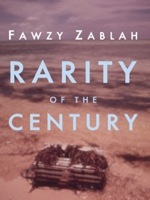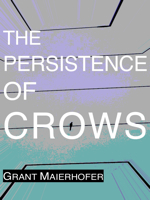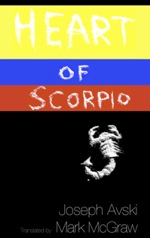(The first installment of my review of LETTERS can be found here: Anti-Political Communist Anarchist Humanist Reflections)
LETTERS is an anti-political communist journal. Its primary aim is to bring maximum disorder to habitual perspectives.
I like this premise. I like upsetting the status quo, making settled waters turbid.
In fact,
There were some sections in LETTERS that succeeded in doing just this, stimulating self-reflection by disrupting habits, routines, conventions.
That said,
There were also others that, because of their turgid language, were more frustrating than eye-opening, and I stopped reading.
This precise sentiment is expressed several times in LETTERS III
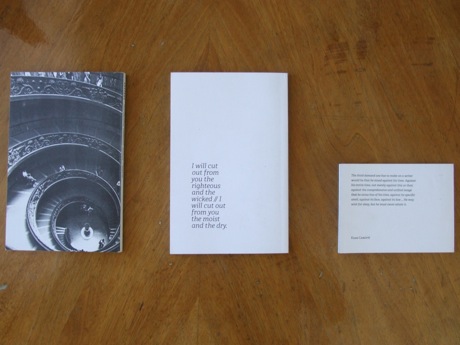
LETTERS III
First, in LETTER ABOUT INVADERS, which is a letter addressed to Y:
Dear Y,
You have said you like Michael Heinrich’s essay Invaders from Marx, translated by Angelus Novus, but what is it in this piece that you like? As far as I can tell it operates within a fairly typical set of parameters for Marxist theory, with a ratio of 4 to 5 decent sentences/insights to 13 pages of indifferent primping and preening.
4-5 decent sentences for every 13 pages of bombast. That sounds about right.
And, in the same section:
The question of relating our analysis, our ideas, to an external populace not interested in any of what we have to say is the only political question worth asking.
This does seem worthwhile.
Then, in the blurb preceding WHY DID YOU JOIN THE AF (Anarchist Federation in the UK) FOR THE SECOND TIME:
Two old geezers babble incomprehensibly about obscure occurrences in a manner that will be of interest to a microscopically small number of people. Consequently, many readers will conclude that their dialogue, and the relationships which it refers to, has no relevance to anybody or anything beyond the confines of the milieu under discussion. However, this conclusion is catastrophically mistaken – the matters under discussion here are of global importance.
Incomprehensible babbling, pages and pages of stifled prose and dialogue, that’s what LETTERS sometimes put me through, and I stopped reading.
But this, I feel, reveals a lot with regards to the relative unpopularity of anti-political communist writings in general: they often aren’t accessible even though they’re aware of their own inaccessibility.
Think of nodding off as that near-dead professor at the head of the classroom mumbled for 50-60 minutes into his crumby beard.
It really is too bad, the boredom that’s typically associated with this brand of essay or lecture, but the truth is that it has nothing to do with the subject matter and everything to do with its rendering, or, in the case of LETTERS, its wording.
One section I enjoyed reading and will probably read again in LETTERS III was PARIS MATCH by Frére Dupont.
I found his understanding of French street protests very interesting,
And his language traveled directly to me, the reader, without meandering.
I had also never heard of the ‘cynical subject’.
Apparently,
In order for any street protest to escalate and accomplish some sort of change,
the cynical subjects of that society must become active participants.
This happens only when the cynical subjects are negatively affected by whatever issue is being protested.
But this is rare because the nature of the cynical subjects is to stay aloof and uninvolved until there is a personal reason to engage.
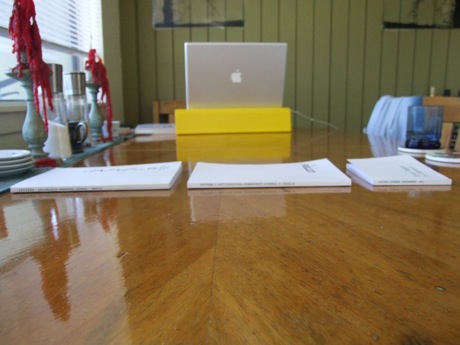
LETTERS IV
On the outside, LETTERS IV is very similar to its older brother, LETTERS III. Both are clean white journal objects with smooth covers that reveal little about their content. While LETTERS III has a black-and-white picture of a golden ratio staircase on the back cover, LETTERS IV has verse:
I will cut
out from
you the
righteous
and the
wicked // I
will cut out
from you
the moist
and the dry.
On the inside, LETTERS IV differs from its older brother in that it has a masthead at the beginning, as well as a Table of Contents, both of which I found useful in that they helped create a fuller picture of this publication out of Lexington, Kentucky.
I also appreciated the 2 line drawings in the newest issue. A nice touch. I feel like this journal is becoming more aesthetic with the passing of time, filling out and learning how to bloom in nuanced ways. I’m curious to see how the next issue will challenge its older brothers.
One thing is for certain, LETTERS won’t settle into a habitual perspective.
It’s comforting to know that DA, the editor, is determined to keep the content and form of LETTERS true to his primary aim.
I do wonder, though, why both line drawings are of troubled children. One seems to be yelling right at the reader, demanding your attention, while the other seems to be afraid of something oozing in the corner.
As with LETTERS III, there were some sections that were too wordy, unclear, and academic to resonate with anything inside me, and I stopped reading.
Then there were others that tolled my bell, like Antti R.’s piece in the section labeled FRIENDSHIP:
Your time and resources limit the amount of friendship you may buy from the market of human relations; you may only have a few deep relations or several more superficial ones.
Written in sober language, Antti R. illustrates how the dynamics behind capitalism reach beyond a society’s economy and into the ties that bond one person to another.
A compelling and perfectly cynical take on the State of Things, if you ask me.
EVERY BEGGAR IS ODYSSEUS
A neat little literary supplement came with LETTERS IV, roughly half the size of its parent with an Elias Canetti quote on the back cover and 1 line drawing of a crying child on the inside.
There was also 1 missing page at the very beginning and 1 at the very end, pages torn out and perhaps discarded.
As usual, DA is the first to give the reader something to mull:
Never before has there been so much poetry, yet it has vanished, accumulated to the point of invisibility.
For something to be so numerous, so manifold, that it disappears in the mob, makes itself worthless – it’s an asphyxiating image, one that leaves wordsmiths everywhere short of breath, but it’s also promising, for it implies that the written word is sublime.
A poignant Virginia Wolf quote makes it clear from the start of EVERY BEGGAR IS ODYSSEUS that its selection of stories, poems, and conversations stand alone on these pages for me, the reader, to interpret as I wish. The authors already did their part, the rest is up to me.
The first short fiction, DOLORES PARK by Matt Lucas, was a fun story to tag along to about the nature of relationships. While its outlook seems pessimistic, there’s also a quirky note of levity at the end:
He read and reread the quote hoping that it would somehow open up the meaning of her words.
“You’re still here,” he said after a few minutes.
“I am.”
“I’m still here too.”
Being able to depend on companionship, to be your fucked-up self and still have that other person with you – listening, waiting, loving – there’s nothing more beautiful than being present.
I like this short fiction because I can see how it fits in with the primary aim of LETTERS yet its dialogue isn’t stilted, contrived, or pedantic, like some of the other selections in EVERY BEGGAR IS ODYSSEUS.
The longer interview with Tim Wilkinson, translator of Imre Kertész from the Hungarian, was a pleasant read that shed light on the translation process and the many pitfalls that often hobble translators.
I haven’t read Kertész’s KADDISH FOR A CHILD NOT BORN, but I will.
FINAL THOUGHT
I think it’s unreasonable and lazy to expect to like everything in a journal, especially a highly nuanced one like LETTERS. There will always be selections that don’t do it for you, but that doesn’t mean something won’t c l i c k when you’re in a different mood or point in your life.
With that in mind, it’s sufficient for a journal to glimmer once or twice upon reading. LETTERS definitely met and exceeded this arbitrary quota. And, as a journal object, I can’t get enough of its spartan design that isn’t afraid of its unending evolution.
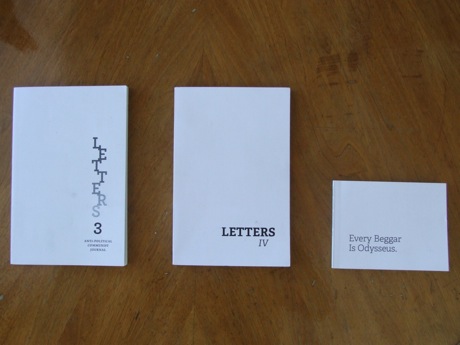
MY RATING = ![]()
![]()
![]()
![]()
![]()



